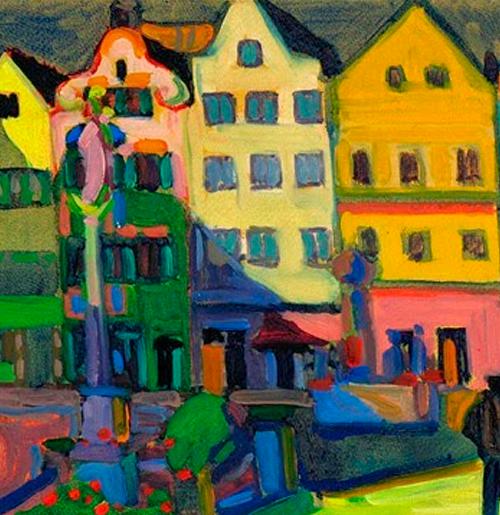Craig G. Bartholomew, Where Mortals Dwell: A Christian View of Place for Today (Baker Academic: September 1, 2011; 384 pages).
Where Mortals Dwell begins with a timely reminder – to be human is to dwell within a particular place. From the moment that we are, we are “implaced.” This apparently self-evident fact is threatened today, however, by a “crisis of place.” Globalized economic forces and political flare-ups fling people over borders and even into new continents seeking work and stability, while historic communities are eviscerated. Pocket-sized smartphones and unbroken internet access allow people to be virtually “in touch” with people, places, and events everywhere –everywhere, that is, except where they actually, literally, are. Standing as a backdrop to this is the all-pervading heritage of modern scientific thought, which enshrines abstract data while distrusting and disdaining lived experience.
In such a milieu, this book is a welcome contribution. Bartholomew's own voice comes through most in the introduction and the final chapters, as he strives to define “place” and suggests strategies to invite individuals and communities to dwell more intentionally in the concrete places where they spend their lives. Sandwiched in between these sections are chapters that review the treatment of place in Scripture, classical Western philosophy, and Christian theology from the early Church Fathers through contemporary thinkers. Friendly but passing treatment is given to thinkers who propose a sacramental approach to all creation, such as the Orthodox theologian Alexander Schmemann, and the Anglican William Temple. We must be attentive, he says, quoting Gerard Manley Hopkins, to “a world charged with the grandeur of God.” With such a wide swath of philosophy and theology to evaluate, however, an interested student of place might best use these chapters as a doorway into a deeper study of the original texts.
Scripture is given pride of place and receives the closest treatment, with nearly half the book's 300+ pages highlighting the centrality of place in both the Old and the New Testaments. His discussion of the theology of place in Genesis 1-3 shines with insight, and is good company for Catholic studies of the same texts, notably John Paul II's Theology of the Body and Benedict XVI's In the Beginning. Of particular interest are his reflections on Eden as a cultivated garden, a cared-for place, rather than an untamed wilderness, which gives new meaning to the overall teleology of place in the Bible. While noting that an appreciation of rural life and natural places are key, Bartholomew emphasizes more than once that the overall movement of “place” in the Bible is from a garden to a city, the city of God as described in Revelation. The proliferation of urban landscapes cannot simply be dismissed as the “problem” in the midst of our current crisis of place; rather, problems proliferate amidst the unabashed commercialism of most cities, places that ignore the social/relational flourishing of the person.
Bartholomew's entire approach is thoroughly incarnational – the bodily reality of the human person is central because it is in and through one's body that one finds oneself in a place at all. He does not disparage the details of quotidian reality, but rather notes that it is in and through these realities that “placemaking” must happen. He gives suggestions for placemaking via gardening, farming, and community-structuring in cities, universities, and sprawling suburbs. His discussion of homemaking is a particularly welcome compilation of thoughtful suggestions from a variety of sources, including Wendell Berry and Calvin Seerveld. Homemakers must re-learn the art of creating comfortable, livable, hospitable, and productive spaces, rather than striving to imitate the sterility of the catalog or show-room. He even makes a brief foray into birdwatching as a way of entering into the specificity of one's place. Bartholomew also touches on placemaking in the realm of ecological issues, and shows wisdom regarding the liberal/conservative divide among Christians. “A recovery of the biblical notion of creation order...would go a long way towards challenging this polarity. God's order applies as much to marriage and sexuality as it does to how we care for the earth” (p. 312).
Bartholomew makes brief remarks regarding how Christians today might begin to nurture their places more, and is a proponent of meaningful rather than utilitarian architectural spaces. Given a typical suburban church “campus” today, he repeats suggestions of creating a small multi-use town center rather than a huge worship space surrounded by acres of sprawling parking lots. He notes that the tradition of Christian pilgrimage is experiencing a remarkable vitality, even amidst declining church attendance. Pilgrimage is incarnational, creational, and sacramental – not only does it take the particularity of place seriously, it takes the embodied people who journey through time and space to reach holy sites seriously. Bartholomew recognizes, however, that the true challenge of the pilgrim is to deepen their day-to-day recognition of God in the midst of their lives once returning home: “Implacement ultimately means that by the Spirit we have the Father and the Son as our co-inhabitants. Such at-homeness is the key to being at home in our particular places in God's good but fallen world, and is the place from which we derive the vision and resources for birthing Christ again and again in his world.”
Carla Galdo is a graduate of the John Paul II Institute, a leader of the national Catholic women’s book group Well-Read Mom, and a student in the Master of Fine Arts in Creative Writing at the University of St. Thomas-Houston. She lives with her husband, four sons and two daughters in Virginia.
Posted on July 24, 2014
